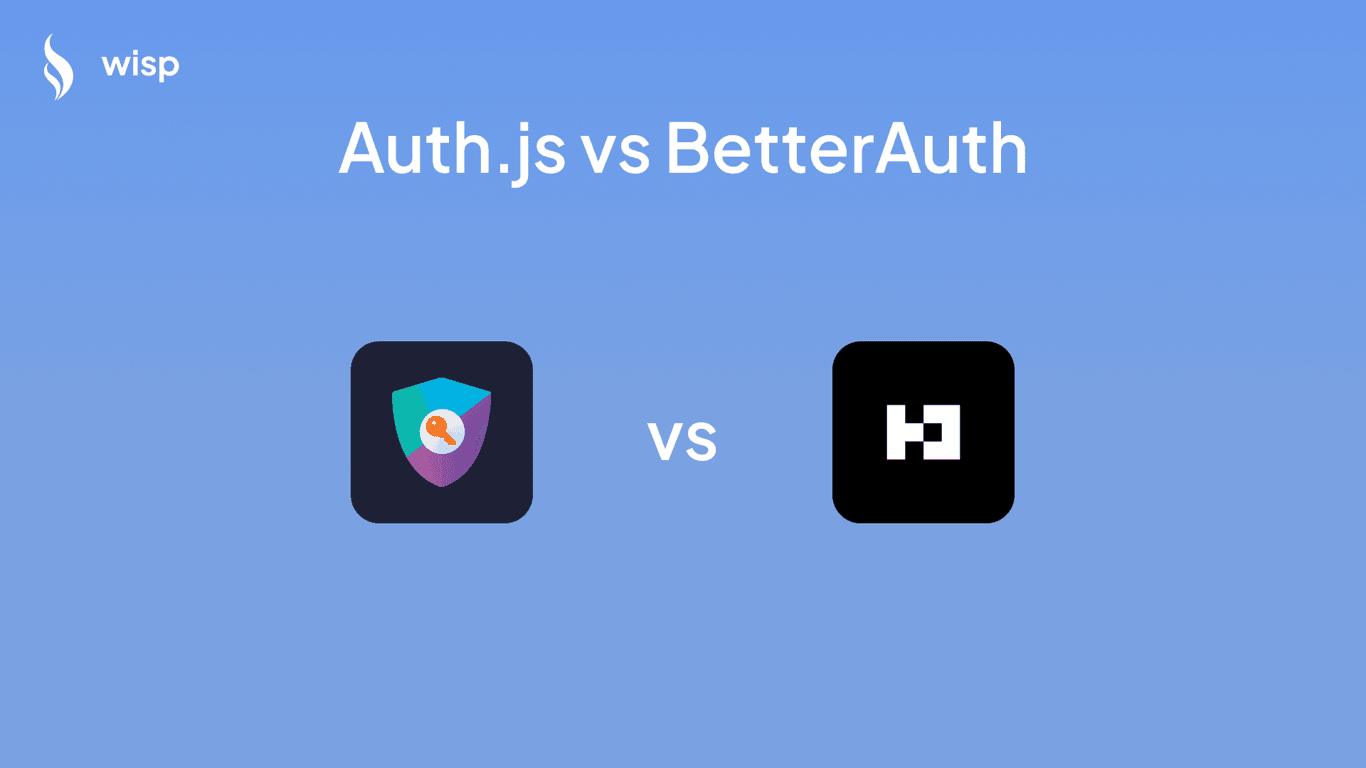
As we approach 2025, the Next.js authentication landscape is undergoing significant changes. With the recent announcement of Lucia Auth's deprecation, developers are actively seeking reliable alternatives for their authentication needs. Whether you're starting a new project or planning to migrate from Lucia, this comprehensive guide will help you navigate the evolving ecosystem of authentication solutions.
The Current State of Next.js Authentication
The deprecation of Lucia Auth by March 2025 has created both challenges and opportunities in the authentication space. While Lucia will continue as an educational resource for developers wanting to understand authentication fundamentals, its departure has highlighted the need for robust, production-ready alternatives.
According to recent discussions in the Next.js community, there's growing concern about developers potentially creating their own authentication implementations. As one developer notes, "it's not a good idea to have amateur devs coding their own implementation of Auth as it's a security concern."
Top Authentication Solutions for 2025
1. NextAuth.js (Auth.js)
NextAuth.js remains a popular choice for Next.js applications, offering robust OAuth support and secure session management. However, it's important to note some limitations:
Strengths:
Extensive OAuth provider support
Built-in security features
Active community support
Free and open-source
Considerations:
Can be challenging for custom authentication flows
Documentation inconsistencies following rebranding to Auth.js
2. Clerk
Clerk has emerged as a powerful contender in the authentication space, particularly for businesses requiring comprehensive user management:
Strengths:
Exceptional developer experience
Pre-built UI components
Multi-factor authentication
Enterprise-grade security
Limitations:
Cost prohibitive for personal projects or applications with many free users
May be overqualified for simple authentication needs
3. Supabase Auth
Supabase Auth has gained significant traction as a developer-friendly alternative to Firebase:
Strengths:
Generous free tier (up to 100k MAU on Pro plan)
Built-in PostgreSQL integration
Cross-platform support (works with React Native)
Considerations:
Learning curve for PostgreSQL if coming from NoSQL
Self-hosting complexity for enterprise requirements
4. Firebase Authentication
Despite some criticism, Firebase Authentication continues to be a reliable choice:
Strengths:
Google's infrastructure backing
Comprehensive authentication methods
Extensive documentation
Free tier availability
Limitations:
Less intuitive data handling
Vendor lock-in concerns
Can become expensive at scale
5. Kinde
Kinde is positioning itself as a cost-effective Auth0 alternative:
Strengths:
Modern authentication features
Competitive pricing
User-friendly dashboard
Strong developer experience
Considerations:
Relatively new to the market
Growing but smaller community compared to alternatives
Emerging Trends and Solutions
Better Auth
Better Auth is an upcoming solution that's generating interest in the Next.js community. Currently in beta, it promises to address common pain points in existing authentication solutions:
Anticipated Features:
Simplified implementation
Flexible authentication flows
Developer-first approach
Modern authentication patterns
Stack Auth
Stack Auth is being developed as an open-source alternative to commercial solutions like Clerk. It aims to provide:
Enterprise-grade features
Open-source flexibility
Community-driven development
Cost-effective scaling
Key Considerations for Choosing an Auth Solution
When selecting an authentication solution for your Next.js project in 2025, consider these factors:
1. Project Scale and Budget
For personal projects or applications with many free users, consider:
Supabase Auth
NextAuth.js
Iron Session
For enterprise applications with specific requirements:
Clerk
Auth0
Firebase Authentication
2. Authentication Requirements
Basic Authentication:
NextAuth.js or Supabase Auth for simple email/password or social login
Complex Flows:
Clerk or Auth0 for advanced features like multi-factor authentication and SSO
3. Development Experience
Consider documentation quality and community support
Evaluate the learning curve and implementation complexity
Check for active maintenance and regular updates
Migration Strategies
If you're currently using Lucia Auth or planning to migrate to a new authentication solution, consider these steps:
Audit Current Authentication Needs
Document your current authentication flows
Identify must-have features
List potential future requirements
Evaluate Alternatives
Test multiple solutions in parallel
Consider both immediate and long-term costs
Assess community feedback and support
Plan the Migration
Create a detailed migration timeline
Implement proper testing procedures
Plan for user communication and support
Future of Authentication in Next.js
The authentication landscape for Next.js is evolving towards:
Simplified Implementation: Solutions that provide easier setup while maintaining security
Flexible Integration: Support for various authentication methods and platforms
Cost-Effective Scaling: Options that grow with your application without breaking the bank
Conclusion
As we move into 2025, the Next.js authentication landscape offers various solutions to fit different project needs. While Lucia's deprecation marks the end of an era, it has paved the way for more specialized and user-friendly authentication solutions.
For most projects, Supabase Auth and NextAuth.js provide excellent starting points, while Clerk and Auth0 cater to more complex enterprise needs. Keep an eye on emerging solutions like Better Auth and Stack Auth, which might reshape the authentication landscape in the coming year.
Remember to choose an authentication solution that not only meets your current needs but also aligns with your project's growth trajectory and budget constraints. The right choice will depend on your specific use case, development team expertise, and long-term maintenance considerations.



